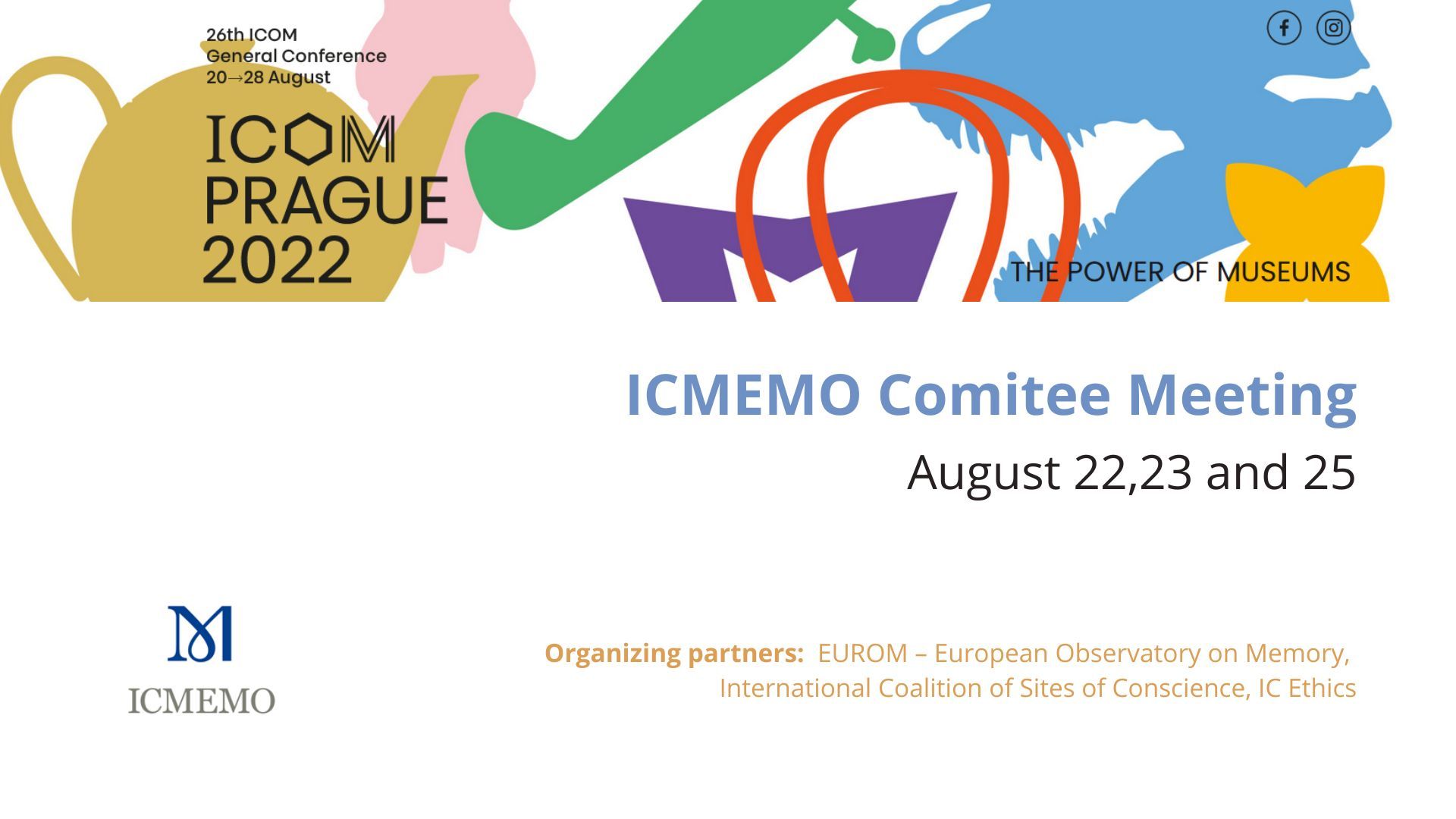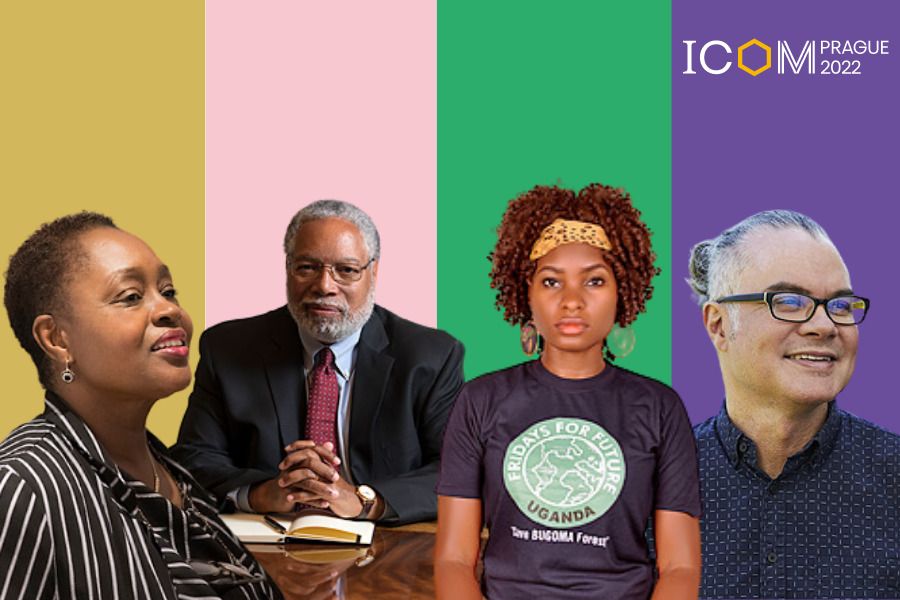- The EUROM is one of the co-organizers of the annual meeting of the International Committee for Memorial Museums in Remembrance of the Victims of Public Crimes that will be held on August 22 and 23 in Prague during the 26th ICOM General Conference;
- The event is an opportunity to discuss and vote on multiple themes that have defined ICOM work during the last few years: the new Museum Definition, the revision of the Code of Ethics, the amendment of the Statutes, and the new ICOM Strategic Plan 2022–2028;
- Under the common theme “The power of museums”, the ICMEMO members will explore the main challenges faced by Memorial Museums such as their active role in promoting dialogue and understanding and the impact of governments’ ideologies on the memorial narratives.
Keynote speakers ICOM Triannual Conference
Margarita Reyes Suárez | Purpose: Museums and Civil Society
Hilda Flavia Nakabuye | Sustainability: Museums and Resilience
Lonnie G. Bunch III & Hilary Carty | Vision: Museums and leadership
Seb Chan | Delivery: Museums and new technologies
Agenda ICMEMO annual Meeting
22 August 2022, 16:00–17:30, Prague Congress Centre
Organizing committees: ICMEMO, EUROM – European Observatory on Memory, International Coalition of Sites of Conscience
Museums as Instruments of Propaganda
The session will explore the extent to which governments and other institutions dictate the historical and memorial message to fit a political view and agenda, and the role of governments in the closure of museums and memorials and removal or placement of key staff. We hope to gain an understanding of how ideologies have impacted museums, positively or negatively, and an understanding of how ICMEMO can offer support so museums may continue to effectively and ethically engage with the public.
23 August 2022, 14:30–16:00, Prague Congress Centre
Organizing committees: ICMEMO, EUROM – European Observatory on Memory, International Coalition of Sites of Conscience
Museums as Open Doors to Dialogue
Memorial museums are particularly sensitive to the power of museums to create stories that in turn develop identity, as well as provide a platform for debate. They can counterbalance political developments by opening their doors to global issues such as growing prejudice, discrimination, anti-Semitism, hostilities, and social unrest. But also by focusing on politically sensitive historical events that are still relevant today (slavery, decolonisation, etc.). It is about how museums can best serve their communities and play a more active role in promoting dialogue and understanding with a more inclusive, open-door policy.
23 August 2022, 16:30–18:00, Prague Congress Centre
Organizing committees: ICMEMO, IC ETHICS, EUROM – European Observatory on Memory, International Coalition of Sites of Conscience
Ethics & Self-Empowerment
In general, museums are dependent on the set of rules within which they exist, rules that relate to the political, social, and cultural consensus that frames their raison d’etre. What space do they actually have to explore and expand within these parameters– and to which degree could they go beyond given systems if ethical self-questioning demands new approaches? Should museums generate content esteemed of importance to them and their communities beyond their established purpose or lurking political pressures?
Off-site meeting
25 August 2022, Jewish Museum in Prague, Department of Education and Culture
Taking a Stand: Memorial Museums Fight Hate
Organizing committees: ICMEMO, EUROM – European Observatory on Memory, International Coalition of Sites of Conscience
Do memorial museums have a special role to play in addressing racism and hate today? How might we use our collections to address contemporary issues in an increasingly volatile world? To what extent should we take an advocacy role in relation to current issues? How should we respond when museums that memorialize victims become targets of hate themselves?


